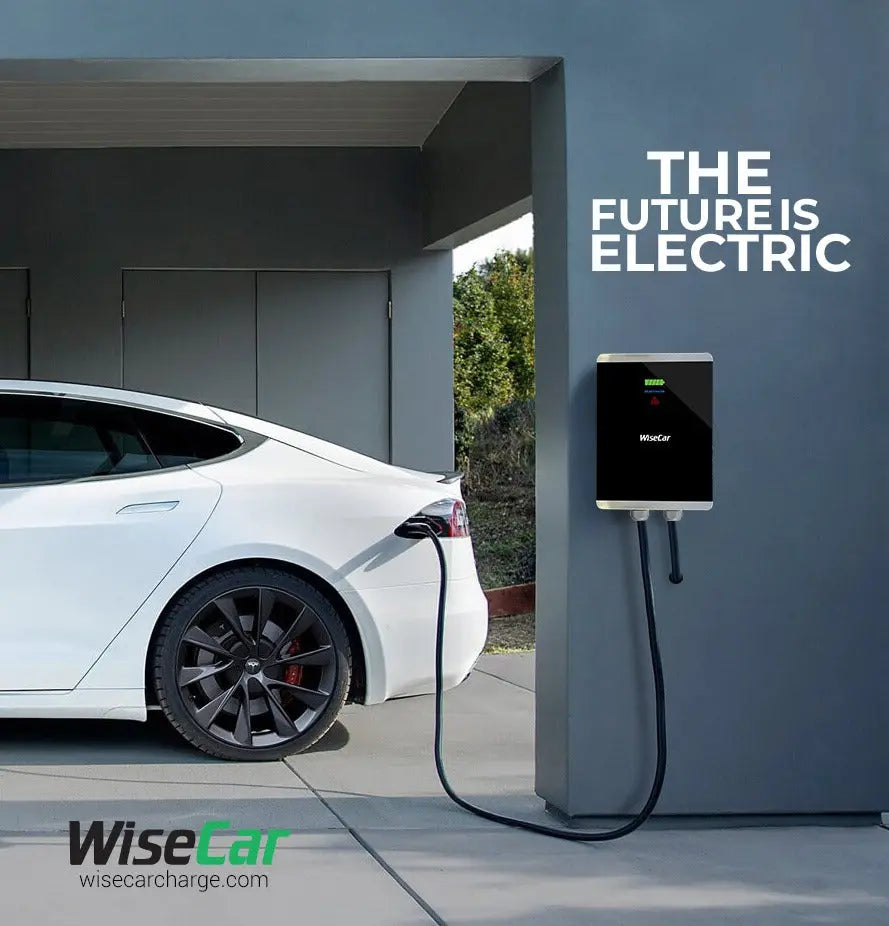
Cost of Charging at Home with an Electric Vehicle Charger: How Much Could You Save?
Cost of Charging at Home with an Electric Vehicle Charger: How Much Could You Save?
Electric vehicles (EVs) are becoming more and more popular, and one of the biggest advantages of these vehicles is that they can be charged at home. However, many users may be concerned about the cost of installing an EV charger at home and charging it regularly. In this article, we will look at the cost of charging your EV at home and how much you can save by doing so.
1. Electric Vehicle Charger Installation Cost
The initial cost of installing an EV charger at home is the device itself. Stationary models like the WiseCar WT3 SMART or portable models like the WTPS3 can be in different price ranges. The average charger cost usually ranges between ₺15,000-₺25,000. In addition, the installation costs of the device should be added to this price.
A. Electrical Installation and Wiring:
The cost of installing a home charger can vary depending on your home’s existing electrical system. Factors that affect this cost include whether any electrical upgrades are needed and the complexity of the installation. Installation by a professional electrician can typically cost between $200-$1,000.
B. Total Installation Cost:
As a result, the total cost of installing an EV charger at home can range from £15,000 to £30,000. This is a reasonable investment for many EV users when compared to the long-term savings.
2. Energy Cost of Charging an Electric Vehicle
When charging your electric vehicle at home, the main cost is the electricity consumed during charging. This cost varies depending on your local electricity tariff and your vehicle's battery capacity.
A. Electricity Cost per Kilowatt Hour:
Electricity tariffs vary depending on the country and region you live in. For example, the average cost of electricity in the US is around $0.13 per kilowatt hour (kWh). In Turkey, this cost can range from approximately ₺1.82-₺2.00/kWh. However, it is possible to reduce this cost by using discounted time periods such as night tariffs.
B. Vehicle Charging Cost:
The amount of energy required to fully charge an electric vehicle depends on the battery capacity. For example, a 60 kWh battery will require approximately 60 kWh of electricity to fully charge it. In this case, if we calculate based on an average electricity tariff:
• USA: 60 kWh x $0.13/kWh = $7.8
• Türkiye: 60 kWh x 2.00TL/kWh = 120 TL
This cost will vary depending on how often you charge your vehicle and how far you travel.
3. Savings on Fuel Costs for Charging an Electric Vehicle
Electric vehicles have much lower fuel costs than gasoline or diesel vehicles. On average, an electric vehicle uses around 15-20 kWh of electricity to travel 100 kilometers. In comparison, a gasoline vehicle can consume 6-8 liters of fuel for the same distance.
A. Fuel Cost Comparison:
While gas prices vary from country to country, electric vehicles generally offer a lower cost per kilometer. For example, for 100 kilometers:
• Gasoline Vehicle: 7 liters x 1.5 USD/liter = 10.5 USD
• Electric Vehicle (US): 20 kWh x 0.13 USD/kWh = 2.6 USD
• Electric Vehicle (Türkiye): 20 kWh x 2.00TL/kWh = 40 TL
This example shows that electric vehicles provide significant savings in fuel costs in the long run.
4. Other Savings and Incentives
Many countries and regions offer incentives and tax breaks to EV owners. These incentives can reduce both the cost of installing a charger and the overall cost of using it. For example, in some countries, government-supported energy programs can reduce the cost of installing a charger or offer discounted electricity rates to EV owners.
Conclusion
The cost of charging at home with WiseCar electric vehicle chargers is an investment that can save you a lot of money in the long run. While the installation costs may seem high at first, the reduction in fuel costs and possible incentives will allow you to quickly recoup this cost. For electric vehicle owners, this type of investment offers both an environmentally friendly and budget-friendly solution.
Electric vehicles (EVs) are becoming more and more popular, and one of the biggest advantages of these vehicles is that they can be charged at home. However, many users may be concerned about the cost of installing an EV charger at home and charging it regularly. In this article, we will look at the cost of charging your EV at home and how much you can save by doing so.
1. Electric Vehicle Charger Installation Cost
The initial cost of installing an EV charger at home is the device itself. Stationary models like the WiseCar WT3 SMART or portable models like the WTPS3 can be in different price ranges. The average charger cost usually ranges between ₺15,000-₺25,000. In addition, the installation costs of the device should be added to this price.
A. Electrical Installation and Wiring:
The cost of installing a home charger can vary depending on your home’s existing electrical system. Factors that affect this cost include whether any electrical upgrades are needed and the complexity of the installation. Installation by a professional electrician can typically cost between $200-$1,000.
B. Total Installation Cost:
As a result, the total cost of installing an EV charger at home can range from £15,000 to £30,000. This is a reasonable investment for many EV users when compared to the long-term savings.
2. Energy Cost of Charging an Electric Vehicle
When charging your electric vehicle at home, the main cost is the electricity consumed during charging. This cost varies depending on your local electricity tariff and your vehicle's battery capacity.
A. Electricity Cost per Kilowatt Hour:
Electricity tariffs vary depending on the country and region you live in. For example, the average cost of electricity in the US is around $0.13 per kilowatt hour (kWh). In Turkey, this cost can range from approximately ₺1.82-₺2.00/kWh. However, it is possible to reduce this cost by using discounted time periods such as night tariffs.
B. Vehicle Charging Cost:
The amount of energy required to fully charge an electric vehicle depends on the battery capacity. For example, a 60 kWh battery will require approximately 60 kWh of electricity to fully charge it. In this case, if we calculate based on an average electricity tariff:
• USA: 60 kWh x $0.13/kWh = $7.8
• Türkiye: 60 kWh x 2.00TL/kWh = 120 TL
This cost will vary depending on how often you charge your vehicle and how far you travel.
3. Savings on Fuel Costs for Charging an Electric Vehicle
Electric vehicles have much lower fuel costs than gasoline or diesel vehicles. On average, an electric vehicle uses around 15-20 kWh of electricity to travel 100 kilometers. In comparison, a gasoline vehicle can consume 6-8 liters of fuel for the same distance.
A. Fuel Cost Comparison:
While gas prices vary from country to country, electric vehicles generally offer a lower cost per kilometer. For example, for 100 kilometers:
• Gasoline Vehicle: 7 liters x 1.5 USD/liter = 10.5 USD
• Electric Vehicle (US): 20 kWh x 0.13 USD/kWh = 2.6 USD
• Electric Vehicle (Türkiye): 20 kWh x 2.00TL/kWh = 40 TL
This example shows that electric vehicles provide significant savings in fuel costs in the long run.
4. Other Savings and Incentives
Many countries and regions offer incentives and tax breaks to EV owners. These incentives can reduce both the cost of installing a charger and the overall cost of using it. For example, in some countries, government-supported energy programs can reduce the cost of installing a charger or offer discounted electricity rates to EV owners.
Conclusion
The cost of charging at home with WiseCar electric vehicle chargers is an investment that can save you a lot of money in the long run. While the installation costs may seem high at first, the reduction in fuel costs and possible incentives will allow you to quickly recoup this cost. For electric vehicle owners, this type of investment offers both an environmentally friendly and budget-friendly solution.






